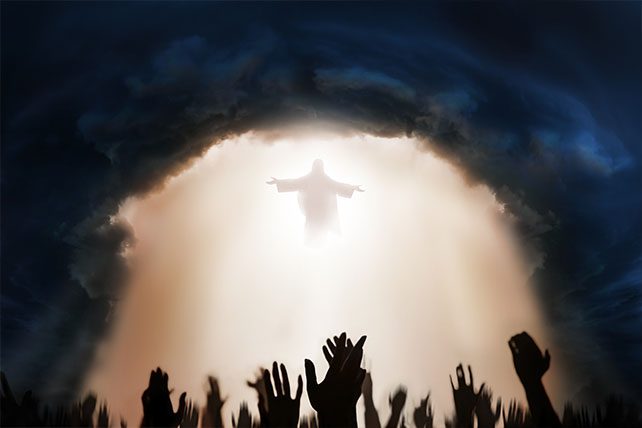The Aramaic phrase “Maranatha” holds a special place in Christian theology and practice, resonating through the ages as a powerful expression of hope, faith, and longing. This term, with its deep historical roots and multifaceted meanings, offers insight into the early Christian community’s challenges, beliefs, and anticipations.
This article delves into the various dimensions of “Maranatha,” exploring its origins, religious significance, pronunciation, and the beliefs of those who cherish this poignant expression.
What is the Meaning of Maranatha?
“Maranatha” is an Aramaic phrase that appears in the New Testament and the early Christian text known as the Didache (10:14). Transliterated directly, “Maranatha” translates to “Our Lord, come!” in English. This translation encapsulates the phrase’s essence as a plea and prayer for the return of Jesus Christ, reflecting a deep yearning for salvation and deliverance. The term serves as both a solemn invocation and a hopeful affirmation of Jesus’ promised return.
In a broader linguistic sense, “Maranatha” has been associated with various meanings such as “edible,” “splendid,” “magnificent,” “fine,” “excessive,” or even “sornatha,” a term indicating disconnection or independence. However, within the Christian tradition, its theological and eschatological implications are most significant, symbolizing the community’s anticipation of Jesus’ second coming.
RELATED: Come Lord Jesus! The Marantha Prayer
Is It a Biblical Name?
While “Maranatha” itself is not a name used for individuals in the Bible, it is indeed a biblical term, found within the sacred texts of Christianity. Its presence in the New Testament underscores its importance and relevance in early Christian teachings and liturgy. As such, while not a personal name, this word is deeply embedded in the biblical narrative and Christian lexicon.
What Religion is Maranatha Associated With?
“Maranatha” is predominantly associated with Christianity, particularly within the context of prayer, worship, and theological discourse. It is a term that has transcended denominational boundaries, finding a place in various Christian traditions as a symbol of hope and divine intervention. The phrase embodies the universal Christian anticipation of Christ’s return and the ultimate fulfillment of God’s promises.
How Do You Pronounce Maranatha?
The pronunciation of “Maranatha” can vary slightly depending on linguistic and regional influences, but the most common pronunciation in English is “Mar-a-na-tha,” with the stress typically placed on the second syllable. The original Aramaic pronunciation may differ, but this English adaptation allows speakers to convey the term’s spiritual significance effectively.
Why Do Christians Say Maranatha?
Christians say “Maranatha” as a way of expressing their longing for Jesus’ return, a core tenet of Christian eschatology. The phrase is used in prayer, worship, and as a form of mutual encouragement among believers, especially in times of persecution or hardship. It serves as a reminder of the hope Christians have in Jesus’ ultimate victory over evil and the establishment of His kingdom.
RELATED: Are We Living in the End Times? Exploring Signs, Scriptures, and Spiritual Insights
What is the Controversy with Maranatha?
While “Maranatha” is a term of profound spiritual significance, its interpretation and usage have sparked debate among theologians and believers. Some controversies may arise from differing views on the nature and timing of Christ’s return, as well as the phrase’s application in contemporary Christian practice.

